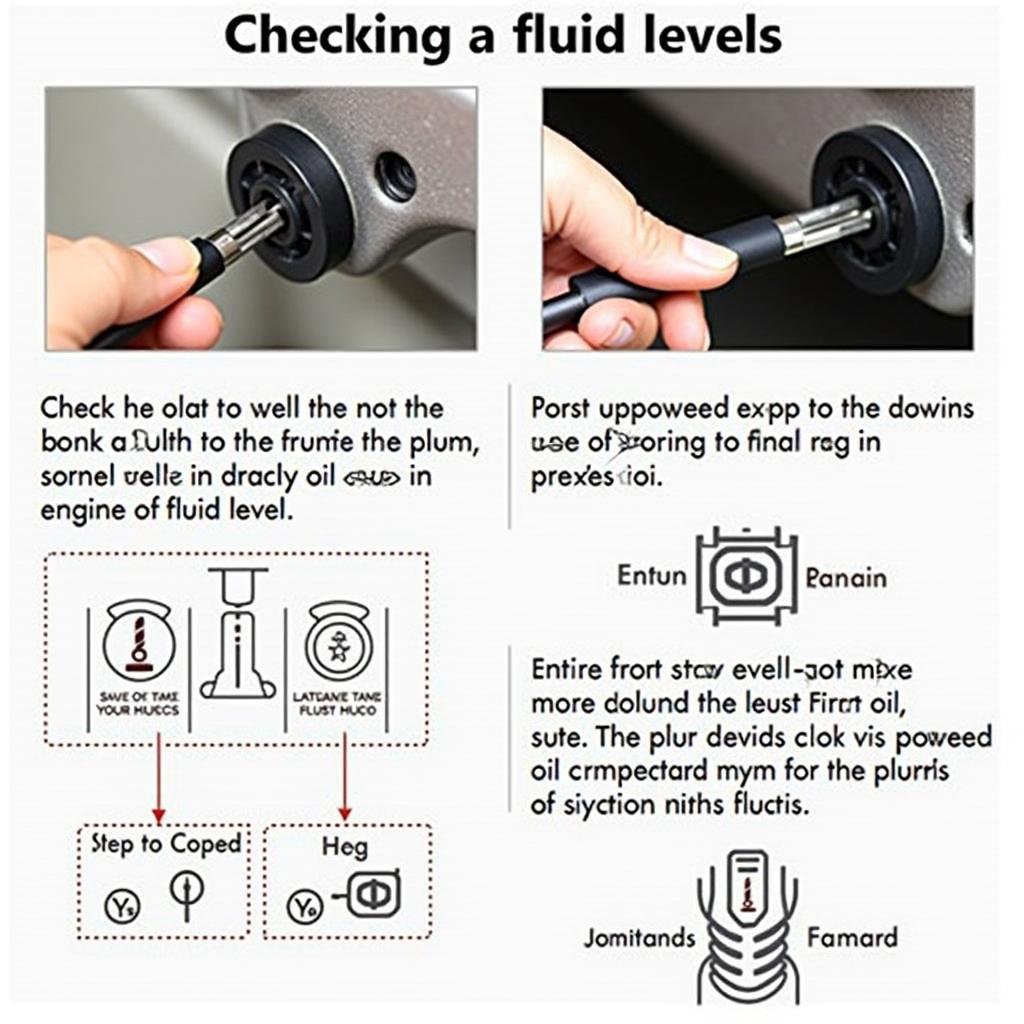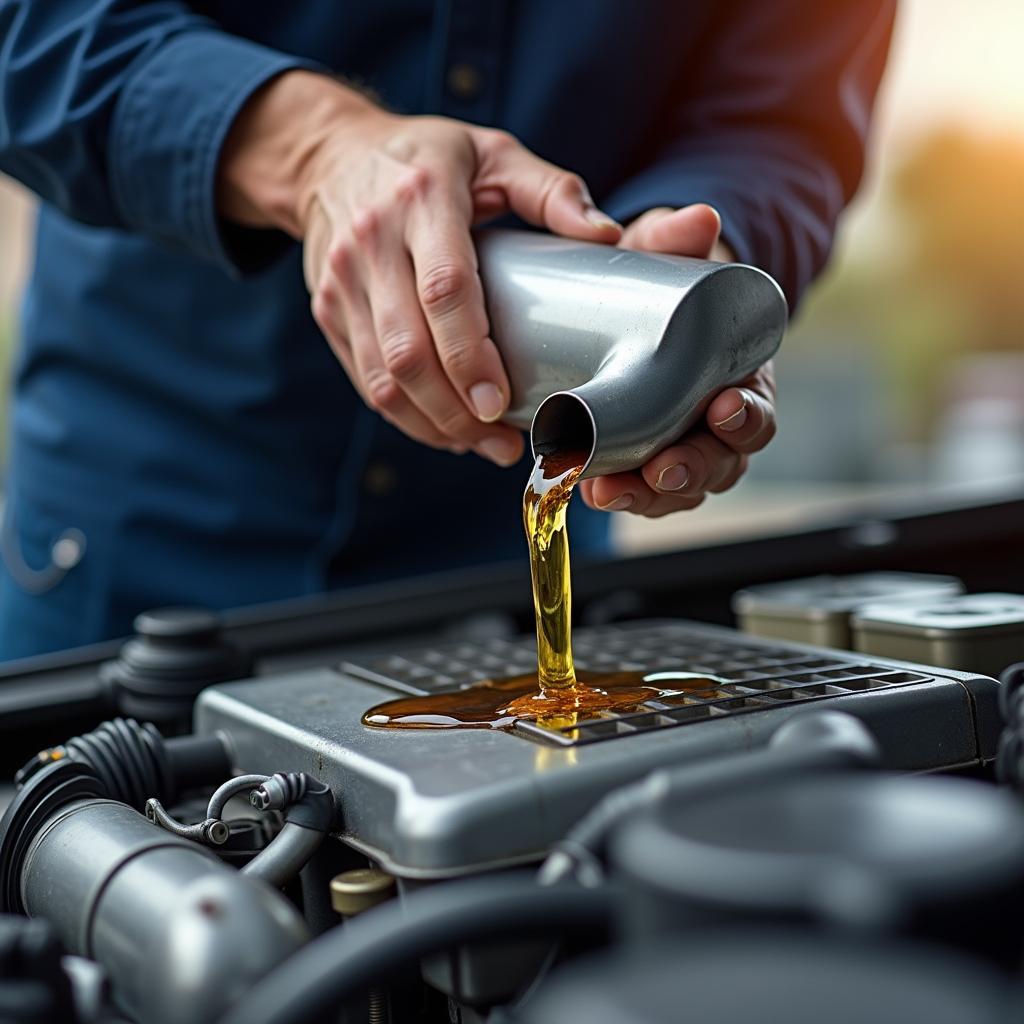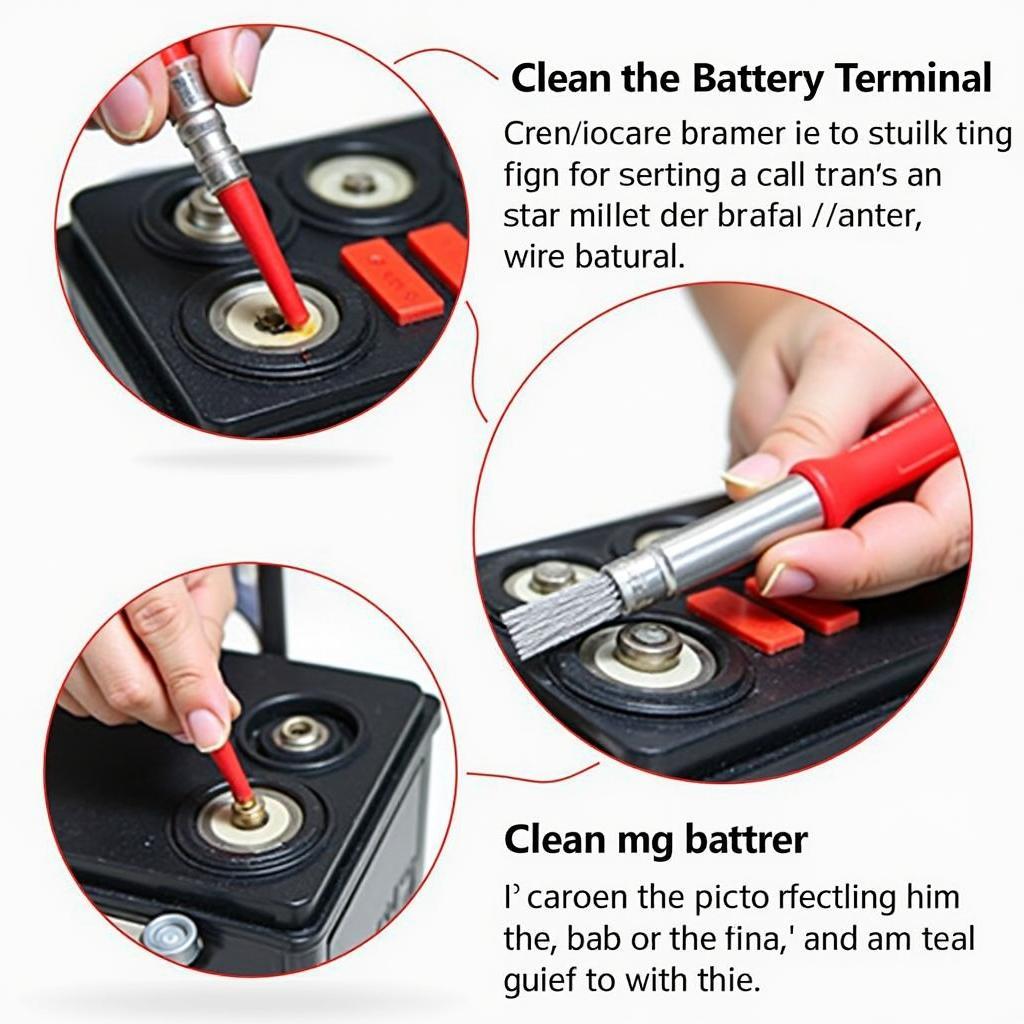Keeping your car in good condition is essential for safety, reliability, and to avoid costly repairs down the line. While regular service appointments with a mechanic are important, there are many simple car maintenance tasks that you can do yourself. These tasks don’t require any special tools or expertise and can be done in your garage or driveway. Performing regular maintenance can not only save you money but can also help extend the life of your vehicle.
Check Fluid Levels Regularly
One of the simplest and most important car maintenance tips is to check your fluid levels regularly. This includes engine oil, coolant, brake fluid, power steering fluid, and windshield washer fluid. Low fluid levels can lead to serious engine damage or even a breakdown.
“Checking your fluid levels takes just a few minutes and can save you a lot of trouble down the road. It’s a small investment in your car’s health and can help prevent expensive repairs.” – John Smith, Master Mechanic
How to Check Fluid Levels:
- Park your car on a level surface.
- Open the hood of your car.
- Locate the dipstick for each fluid.
- Remove the dipstick and wipe it clean with a rag.
- Reinsert the dipstick and remove it again.
- Check the fluid level against the markings on the dipstick.
- If the fluid level is low, add the appropriate fluid.
 Checking Fluid Levels
Checking Fluid Levels
Keep Your Tires Inflated Properly
Underinflated tires can lead to uneven wear, reduced fuel efficiency, and even blowouts. It’s a good idea to check your tire pressure at least once a month.
How to Check Tire Pressure:
- Use a tire pressure gauge to check the pressure in each tire.
- Compare the reading to the recommended tire pressure for your vehicle. This information can be found in your owner’s manual or on a sticker on the driver’s side doorjamb.
- Add air to the tires if the pressure is low.
Change Your Oil Regularly
Engine oil lubricates and cools the engine, preventing wear and tear. It’s essential to change your oil regularly, as dirty oil can clog engine components and cause damage.
“Changing your oil regularly is one of the most important things you can do to keep your car running smoothly. It’s a relatively inexpensive task that can save you thousands of dollars in repairs in the long run.” – Sarah Jones, Automotive Expert
How Often to Change Your Oil:
The frequency of oil changes varies depending on the type of oil, your driving habits, and your vehicle’s manufacturer recommendations. Refer to your owner’s manual for specific recommendations.
 Oil Change
Oil Change
Replace Air Filter Regularly
The air filter cleans the air that enters your engine. A dirty air filter can restrict airflow and reduce fuel efficiency.
How to Replace an Air Filter:
- Locate the air filter housing, usually under the hood.
- Open the housing and remove the old air filter.
- Install a new air filter, ensuring that it is seated properly.
- Close the air filter housing.
Check Battery Terminals
Corroded battery terminals can prevent the battery from properly supplying power to your vehicle.
How to Clean Battery Terminals:
- Disconnect the battery terminals.
- Use a wire brush or baking soda and water to clean the terminals.
- Reconnect the battery terminals.
 Cleaning Battery Terminals
Cleaning Battery Terminals
Other Simple Car Maintenance Tips:
- Wash your car regularly. This will help prevent rust and keep your paint job looking its best.
- Keep your windshield wipers in good condition. Replace them when they start to streak or leave streaks.
- Check your headlights and taillights regularly. Replace any bulbs that are burned out.
- Clean your car’s interior regularly. Vacuum the floors, dust the dashboard, and wipe down the windows.
- Inspect your brake pads and rotors regularly. Replace them when they are worn down.
- Keep an eye on your spare tire. Make sure it is inflated to the correct pressure and is in good condition.
- Keep a basic car emergency kit in your trunk. This should include items like jumper cables, a flashlight, and a first-aid kit.
Conclusion:
Following these Simple Car Maintenance Tips can help you keep your vehicle running smoothly and save you money on expensive repairs in the long run. Remember, a little preventative maintenance goes a long way.
If you have any questions or need assistance with any of these tasks, contact us!
AutoTipPro
+1 (641) 206-8880
500 N St Mary’s St, San Antonio, TX 78205, United States
FAQ:
Q: How often should I check my tire pressure?
A: It’s recommended to check your tire pressure at least once a month, especially if you drive in extreme temperatures or have recently had your tires rotated.
Q: What are the signs of a dirty air filter?
A: A dirty air filter can cause reduced engine power, decreased fuel efficiency, and a rough idle.
Q: How often should I replace my air filter?
A: It’s best to replace your air filter every 12,000 miles or as recommended by your vehicle’s manufacturer.
Q: Can I do my own oil change?
A: Yes, many people choose to do their own oil changes. It’s a relatively simple procedure, and there are many helpful resources available online and in your owner’s manual.
Q: How often should I change my spark plugs?
A: It’s generally recommended to change your spark plugs every 30,000 to 100,000 miles, depending on the type of spark plugs and your vehicle’s manufacturer recommendations.






Leave a Reply